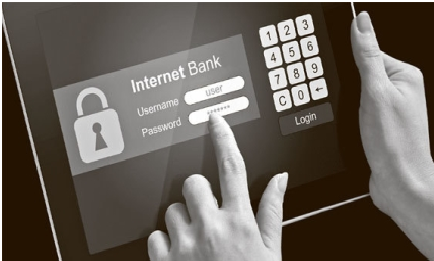Becoming ‘Minnow’ Rather Than ‘Catfish’

The nation's two Internet banks, K-bank and Kakao Bank, were initially supposed to play the role of a "catfish" that stimulates innovation in the domestic financial industry. But they have ended up becoming a "minnow" whose presence is hardly recognizable.
The main reason for this degradation is the lack of progress in easing the strict sepatation between banking and commerce.
According to the government and investment banking (IB) industry sources on June 27, the Financial Services Commission (FSC) was planning to report its scheme to reform regulations on Internet-only banks at a government deregulation meeting to be chaired by President Moon Jae-in.
However, the meeting was abruptly called off at the last minute after Prime Minister Lee Nak-yon asked President Moon to put off the meeting, saying that more work should be done to supplement the reform proposals submitted by each ministry. The FSC said its scheme included measures to cope with the side effects expected to arise when the separation of banking and commerce was eased.
However, the scheme actually lacked specific plans other than the commission's position that it would make efforts to persuade the National Assembly to pass its reform bill. This is why the FSC is seriously seeking to come up with specific action plans.
Internet banks were introduced to create a “catfish” that can stimulate the banking industry at a time when game-changing fintech has emerged. Lim Jong-ryong, former chairman of the FSC, granted approval for internet banks a year ago. However, internet banks have failed to take roots as the separation of banking and commerce has been firmly in place, restricing industrial capital from owning bank shares.
In particular, K-bank is experiencing difficulties as its major shareholders are unable to participate in its capital increase. The bank sought to increase capital by 500 billion won (US$445.75 million), but it could barely increase capital by 150 billion won (US$133.8 million). It needs capital to expand its business, for instance, by offering mid-range interest rate loans. However, K-bank had to stop offering office worker credit loans this year again since it could not increase capital as much as it wanted.
Given the situation, banks, card and capital companies, which got tensed up at the initial stage of internet banks, are becoming relaxed again as they think that internet banks would not be able to compete with them, let alone a commission cutting race. Banks lowered the interest rates on loans and raised the deposit interest rates when internet banks were launched at first, but they no longer make any efforts. Market experts point out that internet banks are now considered a “minnow,” instead of a “catfish,” as they, which were stuck in the regulations on the separation of banking and commerce, fail to promote innovation against expectations.
This is because the deregulation on the separation of banking and industry hasn’t made progress at the standing committee as some members of the ruling party strongly opposed to give internet banks preference. In addition, internet banks cannot aggressively persuade the National Assembly to ease the regulations after K-bank caught in a favor approval scandal. An official from the IB industry said, “When internet banks are activated, the competition to attract customers and lower the interest rates on loans and commissions is inevitable. As they are dragged down by the regulations, the government’s initial purpose has faded a lot.”


